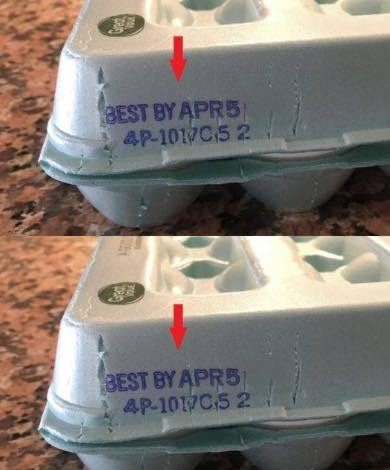
Pay attention to this date from now on. It’s not an ordinary expiration date. After working for years and years in grocery stores, I see that most people just randomly buy eggs without really noticing this detail
For those of us who appreciate the versatility of eggs, whether we’re crafting a light and airy omelet, baking a delicious cake, or whipping up a flavorful fried rice, the quality of the eggs we use truly matters. While a trip to the local farmer’s market can offer fresh, locally sourced options, many of us rely on the convenience of supermarket eggs, often packaged in cartons with seemingly cryptic codes. However, these codes are far from random; they hold valuable information about the freshness and safety of your eggs.
One of the most important codes to understand is the three-digit number printed on the carton. This is known as the Julian date, and it represents the day of the year the eggs were packed. For instance, if you see the number 001, it signifies that the eggs were packed on January 1st. Conversely, the number 365 indicates that the eggs were packaged on December 31st. This date is crucial for determining the freshness of your eggs.
Additionally, you might notice a code that begins with the letter ‘P.’ This is the plant code, which identifies the facility where the eggs were processed. This information is particularly important during product recalls. For example, during a past salmonella outbreak, being able to trace the plant code and Julian date allowed consumers to verify the safety of their eggs.
It’s widely recommended that eggs are consumed within 30 days of their packing date, provided they are stored correctly. Therefore, by checking the Julian date when purchasing eggs, you can accurately calculate the optimal time to use them, ensuring maximum freshness and flavor in your cooking.
Beyond the date codes, pay attention to the USDA grade shield and any additional labels, such as “organic” or “pastured.” Grade AA eggs are considered the highest quality, boasting firm whites and round yolks, making them ideal for frying or poaching. Grade A eggs, while slightly less firm, are still excellent for various cooking applications.
By understanding the codes and labels on your egg cartons, you can make informed choices about the quality and safety of your eggs, enhancing your culinary experiences. Next time you’re at the grocery store, take a moment to decode the carton and select the freshest, highest-quality eggs for your next meal.





